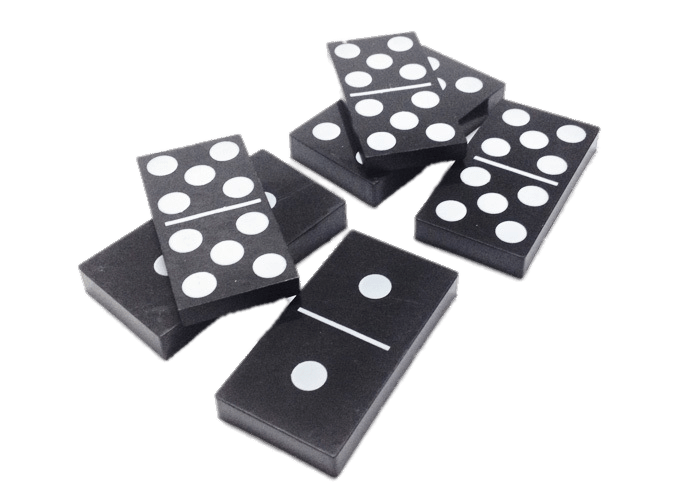- Letters: I/CDMNOU
- Words: 27
- Points: 139
- Pangrams: 1

|
The table provides clues for the roots of words in today's NY Times Spelling Bee. You're responsible for prefixes, suffixes,
tense changes, plurals, doubling consonants before suffixes, and alternate spellings of roots. An exception:
since Sam won't allow S, when the root contains an S, the clue may be for a plural or suffixed form. "Mice" for example.
If a clue isn't self-explanatory, try googling it.
The TL;DR about the site comes after the table.
Past clues are available here |
Today's puzzle
|  |
|
Table content
|
| answers covered | answer's first two letters | answer's length | clue for root (answer may need prefix, suffix, tense change, alt spelling, ...) |
|---|---|---|---|
| 1 | CO | 5 | Spherical or nearly spherical bacterium |
| 1 | CO | 4 | Metal $, noun; or come up with a new phrase, verb |
| 1 | CO | 5 | Paid jokester, or “… book” with superheroes |
| 1 | CO | 9 | The part of Christian worship at which bread and wine are consecrated and shared |
| 1 | CO | 11 | Self-owned apartment with an HOA |
| 1 | CO | 5 | Ice cream holder shape |
| 1 | CU | 5 | Aromatic seeds of a plant of the parsley family, used as a spice, especially ground and used in curry powder |
| 1 | DI | 4 | Flintstones pet, or T. Rex family abbr. |
| 1 | DO | 8 | Sovereign authority over a country or people (Canada was a … from 1867 to 1951) |
| 1 | DO | 6 | Spotted playing tile (“bones”) |
| 2 | IC | 4,6 | Symbol (you tap on phone screen, e.g.) |
| 1 | ID | 5 | Slang phrase particular to a language (“raining cats & dogs”), noun |
| 1 | IO | 5 | Atom or molecule with a net electric charge |
| 1 | MI | 4 | Computer music protocol, calf-length skirt, or noon in French |
| 1 | MI | 5 | Parrot someone’s speaking & mannerisms, verb; or the person doing it, noun |
| 1 | MI | 4 | Intention (I changed my …), noun; or dislike (I don’t … a little rain) or heed (… your manners), verb |
| 1 | MI | 4 | Smaller version (as in Cooper car), slang abbr. |
| 1 | MI | 5 | 1/60 dram, UK music ½ note, or calligraphy short vertical stroke |
| 1 | MI | 7 | Smallest amount (the … bet at this table is $100) |
| 1 | MI | 6 | Underling, as seen in “Despicable Me” |
| 1 | MO | 7 | Small quantity, especially of something desirable or valuable |
| 1 | NU | 6 | Papal ambassador |
| 1 | OD | 5 | General or widespread hatred or disgust |
| 1 | ON | 5 | Veg that makes you cry when cut (for some, this is the "dreaded root veg") |
| 1 | UN | 5 | Perform an action, achieve or complete something; hairstyle (American slang); social event (British slang) |
| 1 | UN | 5 | Labor org. (Teamsters, AFL-CIO); or in math, what you get from putting sets together |
This site provides clues for a day's New York Times Spelling Bee puzzle. It follows in Kevin Davis' footsteps. The original set of 4,500 clues came from him, and they still make up about three quarters of the current clue set.
The "Bee Roots" approach is to provide explicit clues for root words, not every word. As logophiles, we are pretty good at putting on prefixes and suffixes, changing tense, and forming plurals (including Latin plurals!). The clues cover root words, arranged alphabetically by root word, with a count of words in the puzzle that come from each root. For example, if a puzzle includes ROAM and ROAMING, there will be a clue for ROAM and a count of 2. The root may not appear in the puzzle at all; for example, the 2021-07-23 Bee included ICED, DEICE, and DEICED. For such a puzzle, the clue would be for ICE with a word count of 3.
The Bee Roots approach involves judgement sometimes. For example, if a puzzle includes LOVE, LOVED, and LOVELY, how many roots are needed to cover them? LOVE and LOVED share the root LOVE, certainly, but LOVELY is tricky. LOVE is part of its etymology, but by now, the word means "exquisitely beautiful," which is a lot farther from the meaning of LOVE than swithcing to past tense. I'm inclined to treat LOVE and LOVELY as separate roots. You may not agree, which is fine. Another thing we logophiles share is a LOVE of arguing about words on Twitter.
A few words can have one meaning as a suffixed form and another as a stand-alone word. EVENING, for example. In those cases I will use the meaning that I think is more common.
One last complication, until another one pops up: a few roots have multiple spellings, for example LOLLYGAG and LALLYGAG. Depending on the day's letters, and maybe even the editor's whims, one or both could be in the puzzle's answer list. With such roots, you could see a word count of 2, even if there are no applicable prefixes or suffixes.
I will do my best to keep this site up to date and helpful (I hope). Check it out, and tweet feedback to @donswartwout Tweet to @donswartwout